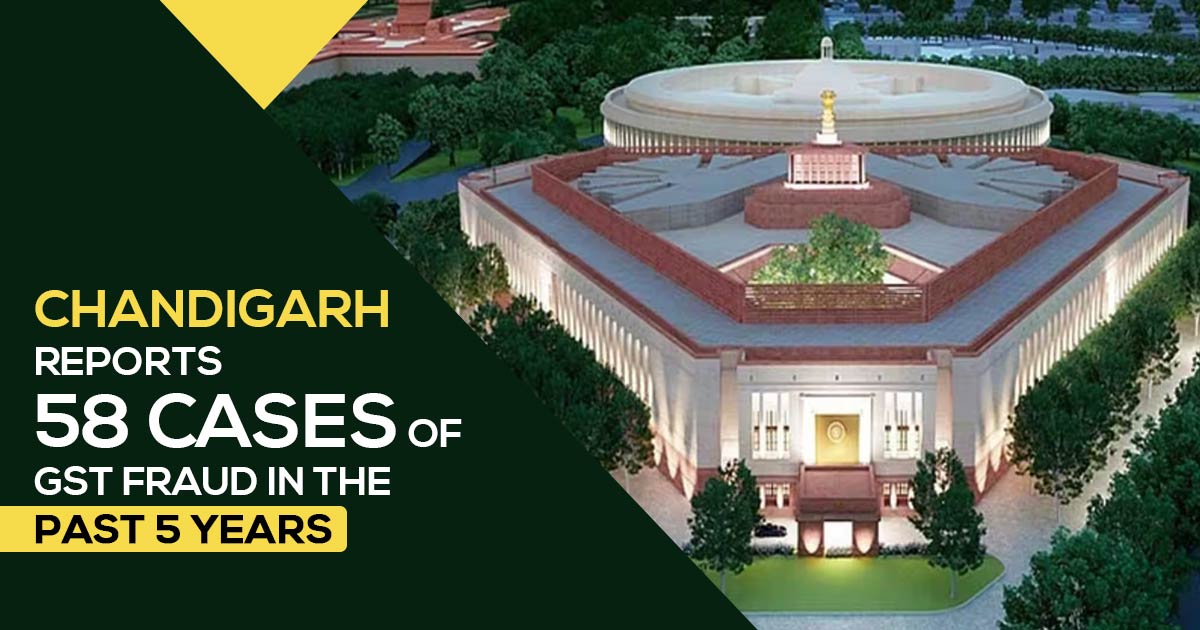
Union Finance Minister of State, Pankaj Chaudhary shared data in the Parliament during the monsoon session where at least 58 cases of Goods and Services Tax (GST) invoices have been found to be registered fraudulently in Chandigarh in the past five years.
Replying to a question asked in the Loksabha, Chaudhary said that the authorities had found 58 fake GST invoice registration cases in Chandigarh from 2018-19 to 2022–23, which caused a loss of Rs. 60 crores. However, Rs. 18 crore has been recovered from the loss. The officials have also arrested two people in the cases.
Three fake GST registration cases using PAN and Aadhar details of other people to claim Input Tax Credit (ITC) have been identified in the city from July 1, 2017, to July 30, 2023. Officials have also nabbed two persons in the case of claiming a total amount of Rs. 10.64 crore in ITC, replied Chaudhary in response to another question.
The minister mentioned some of the government’s efforts to combat GST invoice fraud, such as the use of powerful data analytics and artificial intelligence to identify and follow taxpayers in doubt and discover tax evasion.
From May 16 to July 15, he stated, a special all-India drive was carried out to conclude bogus registrations.
The amendment to Rule 9 of the GST Rules, 2017, allows for physical verification in high-risk circumstances even when Aadhaar has been confirmed. The application of ITC to invoices and debit notes provided by the supplier in their statement of outward supplies is limited. Data is exchanged with cooperating law enforcement agencies in order to provide more focused interventions.
The new GST tax regime was brought into effect on July 1, 2017, to simplify the indirect system by removing several indirect taxes such as VAT, service tax, and so on. There have been reports of fraudsters issuing fraudulent GST invoices since the implementation of the GST tax system.
Officials with the UT Excise and Taxation Department stated they had identified non-functional and fraudulent taxpayers who were not found at their business’s actual location and were engaging in fraudulent practices. The Vigilance Department was conducting investigations in several situations, he stated.
The traders were harassed, according to Charanjiv Singh, head of the Chandigarh Beopar Mandal (CBM). In terms of the bogus invoices, he claims that some traders in Delhi and Mumbai created them and that the traders were paid for items as well as GST on those bills. He also asked that such surveys be conducted only with meaningful input rather than by taxation officers going door-to-door.









